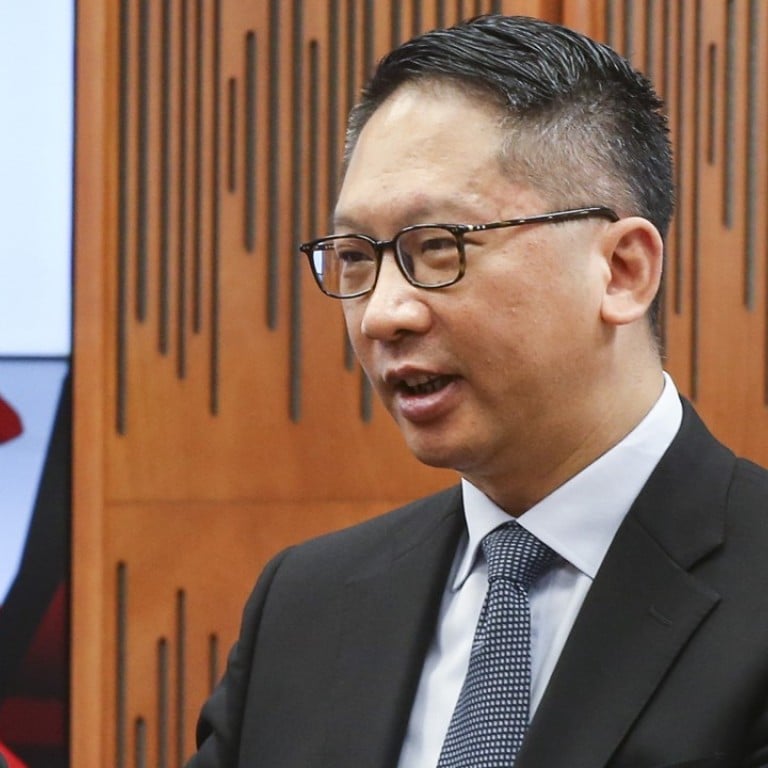
Justice chief defends Hong Kong courts after judicial independence ranking falls for third consecutive year
Rimsky Yuen Kwok-keung’s remarks come amid accusations of political motivation behind recent rulings that saw activists jailed and opposition lawmakers disqualified
Justice minister Rimsky Yuen Kwok-keung put up a strong defence of Hong Kong’s courts on Thursday after the city slipped five places in the judicial independence category of the latest global competitiveness ranking, compiled by the World Economic Forum.
“Although we fell from No 8 to No 13, I am still fully confident in Hong Kong’s judicial independence,” Yuen said.
Is Hong Kong’s rule of law really under threat?
The justice chief said while the government was concerned about the ranking drop, he saw nothing undermining the independence of the legal system in the past year.
“Judges and judicial staff at all levels in Hong Kong have been handling every single case professionally, dedicatedly and independently,” he said.
Yuen acknowledged that in the local and international community, there were some “subjective perceptions” about the city’s judicial independence.
“We can’t solely rely on subjective feelings but have to look at the facts,” he said.
Yuen promised to put more effort into explaining the independence of Hong Kong’s legal system to people at home and abroad “so that they will have a more objective, comprehensive and accurate understanding of the situation”.
Hong Kong leader Carrie Lam lashes out at UK politicians for ‘disrespectful’ comments on jailing of activist trio
Last week, the city’s leader, Chief Executive Carrie Lam Cheng Yuet-ngor, hit back at “disrespectful” and “disturbing” remarks by British politicians and commentators who objected to the jailing of three democracy activists last month.
The jail terms were prompted by a successful push by Yuen for a sentencing review after the activists were previously handed more lenient punishments by the courts.
From November to July, the courts also disqualified six pro-democratic lawmakers who insulted China or failed to take their oath of office properly.
Law Society chairman Thomas So Shiu-tsung said he could not figure out why the city’s judicial independence ranking had been downgraded, and urged the public to remain confident about the rule of law.
When asked if the fact that courts in Hong Kong have to obey Beijing’s interpretation of law affected the ranking, So said it was the right of the National People’s Congress Standing Committee to interpret laws in the city.


